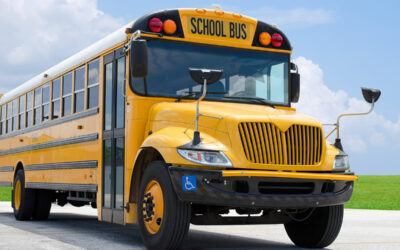Articles
Healing from Trauma/Neglect/Abuse
Maintaining Sibling Connections
Siblings get separated for many reasons when they must leave their parents to live with a family member. While most professionals recommend that siblings stay together if they cannot live at home, separation still happens. How can you support your grandchildren’s...
Helping Your Tween or Teen Develop Their Whole Person
Does your tween or teen grandchild (nephew or cousin) act sullen, angry, illogical, and overly emotional? Do they engage in risky behaviors you never dealt with when raising your kids? You may struggle to understand this young person or feel connected to them because...
Encouraging Curiosity in Children
“Why does the plant need water, Grandma?” “How does that plane stay up in the air?” “What do birds think about when they sleep?” Does your grandchild (nephew, niece, or cousin) ask these questions? Do you feel frustrated, overwhelmed, or stumped by the many questions...
Impacts of Prenatal Exposure to Alcohol and Drugs
Potty Training a Child Who Had Prenatal Substance Exposure
Potty training your young grandchild, niece, or nephew is a huge milestone in gaining independence for you all. Grandparents and relative caregivers may feel overwhelmed with where to start and how long it will take. Every child is different, and there is a wide range...
Helping Kids with ADHD Boost Their Mental Health
Many of the children you are raising have experienced painful losses or abuse. Others were exposed during pregnancy to alcohol or drugs. Still, others have both of those challenges in their history and are living with the impacts today. Those impacts may show up in...
Practical Help for Raising a Child with Prenatal Exposure or FASD
You love this funny, busy, and spunky kid who has moved into your home. Yes, they keep you on your toes and you feel new levels of tired that you haven’t felt in years. But it's pure joy when they conquer a new skill or find their voice. You are committed to...
Challenging Behaviors
Encouraging Curiosity in Children
“Why does the plant need water, Grandma?” “How does that plane stay up in the air?” “What do birds think about when they sleep?” Does your grandchild (nephew, niece, or cousin) ask these questions? Do you feel frustrated, overwhelmed, or stumped by the many questions...
3 Essential Tips for Raising a Child with Brain Differences
Your grandchild with brain differences (like ADHD, prenatal substance exposure, autism, or learning differences) navigates the world differently than you do. Sometimes, those differences can make the days challenging for you all. However, if you can focus on these...
The Do’s and Don’ts of Managing Holiday Stress
During the holiday season, your family may anticipate long days off from school, extra sweets and unique food, and seasonal events. However, you may also feel increased stress and anxiety. After all, there are more things on your To Do list. Your grandchild doesn't...
ADHD
Practical Tips to Help an Easily Distracted Child Pay Attention
Many children impacted by early childhood loss or trauma struggle to pay attention. Kids who were exposed to drugs or alcohol during pregnancy struggle with focus and attention as well. Even if your grandchild does not have a diagnosis of attention deficit...
Helpful Homework Strategies for a Child with ADHD
Homework after school can be a daily struggle when raising a grandchild or loved one with Attention Deficit Hyperactivity Disorder (ADHD). Many of the steps involved in getting the assignments home and finished requires your grandchild to use skills that are...
Empowering Your Teen with ADHD
Your grandchild has ADHD (attention deficit hyperactivity disorder), and you want to support them in ways that empower and equip them to succeed. School, extracurricular activities, and part-time jobs are all typical settings that can stress a typical teen. When a...
Disrupting Birth Order
No Results Found
The page you requested could not be found. Try refining your search, or use the navigation above to locate the post.
Helping A Child Heal from Sexual Abuse
Helping a Child Cope with the Impacts of Sexual Abuse
When a child is sexually abused or assaulted, one of the most damaging impacts of that traumatic experience is shame. The weight of shame and self-blame can lead to years of negative self-talk, depression, anxiety, self-esteem struggles, and more. These impacts make...
3 Ways to Help a Child Heal from Sexual Abuse
It is painful to consider that your grandchild (niece, cousin, or friend) was sexually abused. You might fear the path ahead and worry if they will ever overcome the pain and stigma of the abuse. The good news is that kids can and do heal from this type of abuse if...
School Issues for Foster & Kinship Kids
Creating a Partnership with Your Grandchild’s School
Whether you are raising your nephew, grandchild, or other loved one, you need a supportive and seasoned team around you. One crucial part of that team should be the local school where the child is enrolled. However, grandparents and caregivers often feel as if school...
How to Manage Special Education Services for Your Grandchild
Managing your grandchild or loved one’s IEP, 504, or other special education services in the public schools can feel like an overwhelming task. The language of special education and the process of setting up services can leave you feeling uncertain of your ability to...
A Quick Checklist to Prepare for Back-to-School
It seems almost too soon to mention the “s-c-h-o-o-l" word. Still, quicker than you can imagine, your grandchild will be figuring out who is in their homeroom and talking about packing school supplies. When raising a loved one's child, it's good to consider what else...
Technology/Internet and Our Kids
No Results Found
The page you requested could not be found. Try refining your search, or use the navigation above to locate the post.
Self-Care for Kinship and Foster Parents
Simple Habits to Help You Take Care of Yourself
This time of year, many grandparents and relative caregivers are heaving huge sighs of relief that kids are back in school. It's beneficial to have the structure of the school routine to guide a child's day. And the break for caregivers is physical, mental, and...
Do You Have a Strong Support Network?
Raising your nephew, cousin, or grandchild can be a fantastic opportunity to support your extended family. You are providing a safe landing place for this child while their parents get back on their feet. The child is experiencing the emotional and physical safety,...
7 Signs of Caregiver Burnout and What to Do About It
Are you helping or supporting your extended family? Are you raising a grandchild, niece, or family friend while the child's parents get help? If so, you might be at risk for caregiver burnout. Caring for a child with significant learning challenges, problematic...
Relationship with Child’s Parent
Tips for Maintaining Relationships with Parents Who Struggle with Substance Abuse
Many grandparents or aunts are raising their grandchild or nephew because the child’s parents are addicted. It is easy and very tempting to judge the child's parents as bad and irresponsible. While you love them, you may be angry at them for putting you in this...
Practical Tips for Sharing the Parenting Load In Kinship Caregiving
No one-size-fits-all solution exists for raising a loved one's child in your home. Depending upon the role this child’s parent can play, the safety and legal issues in your family’s particular circumstances, and other issues your family faces, you might have questions...
How Can You Support Reunification for Your Grandchild and their Parents?
As a grandparent, aunt, or cousin raising this child when their parents cannot do it, you have a unique opportunity to provide nurturing care and space for healing for your loved ones. However, the relationship you already have with this child’s parents, whether they...
Working Together For the Good of the Child In Your Care
Starting on the Right Foot if Raising Your Grandchild is New to You
Many factors have come together to lead you to welcome your grandchild (or any other relative) to your home. This new situation can be fulfilling and satisfying – after all, you are helping this child find healing and safety to grow and thrive. However, the new...
Resources to Strengthen and Support Your Family
“It takes a village” brings a whole new meaning when you are raising a grandchild or cousin. Whether you are helping your adult children bring up their kids or raising a nephew or niece for the long haul, you need resources, community, and support. We’re bringing...
Refreshing Your Hope and Strength for Raising This Child
Whether you've already raised several children or recently welcomed another grandchild or loved one to your home, it’s easy to feel weary about the “full plate” in front of you. Raising a grandchild or other relative’s child brings you many new challenges. Maybe you...
Phone
This website was supported with funding from the U.S. Department of Health and Human Services, Administration for Children and Families’ Children’s Bureau through the Improving Child Welfare Through Investing in Family grant #HHS-2021-ACF-ACYF-CW-1921. The purpose of this grant is to provide an array of kinship preparation services and ongoing kinship supports, and provide shared parenting to build trusting relationships between all out-of-home caregivers and parents of children/youth in foster care to ensure parents and families remain actively involved in normal child-rearing activities.
This website is supported by Grant Number 90CW1149 (HHS-2021-ACF-ACYF-CW-1921) from the Children’s Bureau within the Administration for Children and Families, a division of the U.S. Department of Health and Human Services. Neither the Administration for Children and Families nor any of its components operate, control, are responsible for, or necessarily endorse this website (including, without limitation, its content, technical infrastructure, and policies, and any services or tools provided). The opinions, findings, conclusions, and recommendations expressed are those of the author(s) and do not necessarily reflect the views of the Administration for Children and Families and the Children’s Bureau.

























